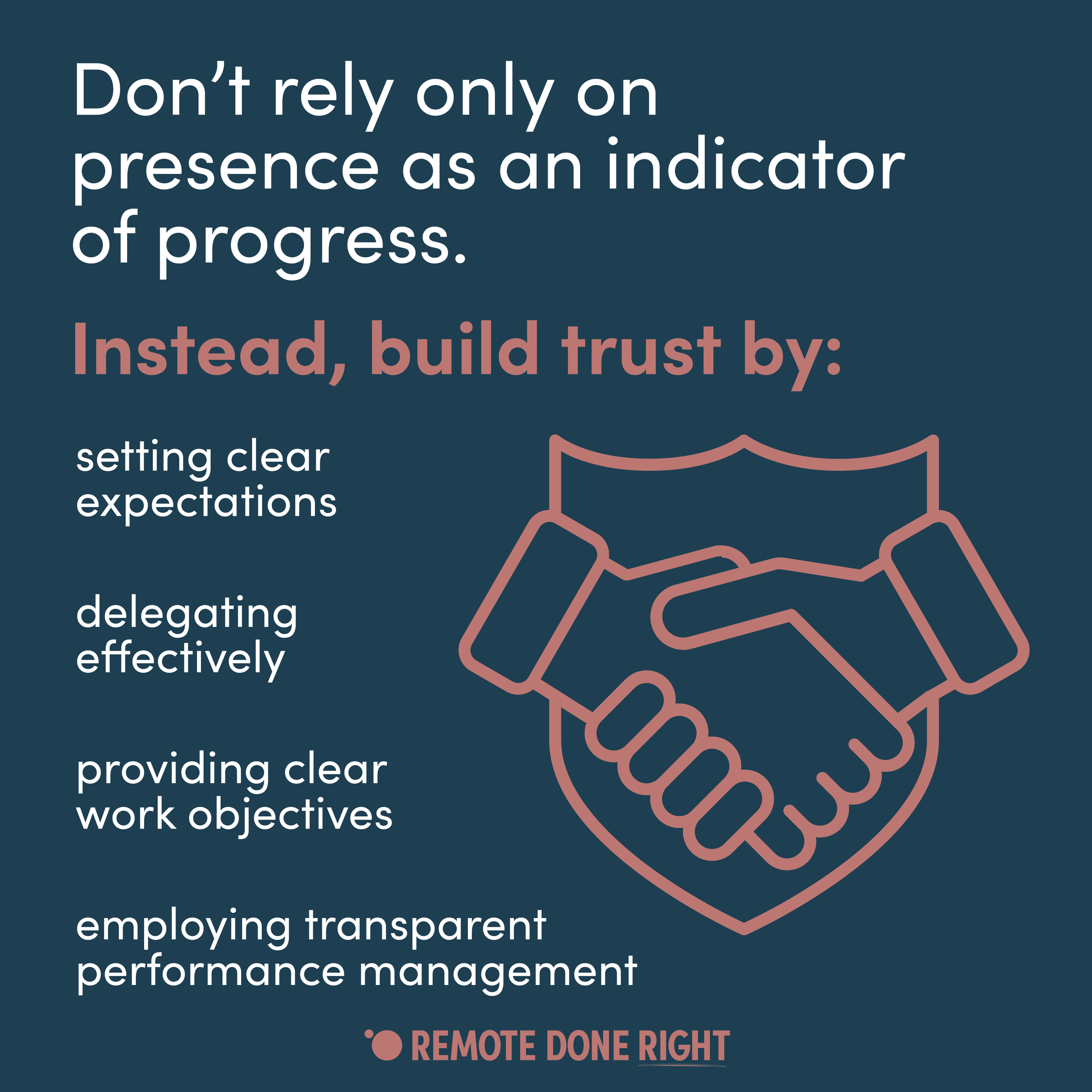Don’t rely only on presence as a sign of progress.
Joe’s MS Teams indicator is always red, what is he doing? Susan’s is always green so why doesn’t she answer calls?
In both the office and at home, open communication and clear expectations build trust and help people to succeed. Leaders who are frustrated by lack of visibility in their remote teams can reset expectations by having a conversation with their team.
"Ultimately, you cultivate trust by setting a clear direction, giving people what they need to see it through, and getting out of their way. It’s not about being easy on your employees or expecting less from them. High-trust companies hold people accountable but without micromanaging them. They treat people like responsible adults." - Paul J. Zak
Stop wondering what your team is doing and start building a remote leadership system that works. Download our free checklist to get started.
Why it matters
If you’re not intentional about building trust in your team, remote work will amplify problems and can cause people to disengage. When people disengage they can:
Delay the team leading to missed deadlines and incomplete deliverables
Negatively impact collaboration and completion of joint tasks
Hinder coaching, onboarding and issues resolution
Unconsciously create a negative impression on leaders and colleagues impacting their career opportunities
Take action
If you have concerns about a team member, try resetting your systems to focus on success in a remote environment.
Managerial systems:
Are you setting clear expectations?
Do your team have clarity on work objectives?
Are you delegating effectively, giving people responsibility and autonomy as much as possible?
Are your performance management activities transparent and do they support people to succeed?
Have you undertaken specific training in managing a remote team?
Team systems:
Have you agreed team expectations for:
How and when to use availability indicators (e.g. do not disturb v. busy v. out of office)?
Target response times for email, chat, phone text, phone calls.
Responsibilities for all team members (e.g., Helping others, availability, collaboration on resolving issues issues)
Do you know each other’s preferences for availability? Do you have deep work sessions where people would prefer to not be disturbed?
Can you agree on a way to get a quick response when required?
Are calendars shared and visible to all team members?
Have you considered the use of an “open-line” background chat for the team?
Do you review these systems regularly?
Remember, presence is not necessarily an indicator of progress, focus on how you can ensure the work gets done in a way that builds trust.
“Compared with people at low-trust companies, people at high-trust companies report: 75% less stress, 106% more energy at work, 50% higher productivity, 13% fewer sick days, 76% more engagement, 29% more satisfaction with their lives, 40% less burnout.” - Paul J. Zak
Join our community
Sign up to our newsletter and join our community of people committed to making remote work fair and productive.
Go deeper
Zak, P. J. (2017). The Neuroscience of Trust. Harvard Business Review. https://hbr.org/2017/01/the-neuroscience-of-trust
Parker, S. K., Knight, C., & Keller, A. (2020). Remote Managers are Having Trust Issues. Harvard Business Review. https://hbr.org/2020/07/remote-managers-are-having-trust-issues
Tsipursky, G. (2022). What is Proximity Bias and How Can Managers Prevent It? Harvard Business Review. https://hbr.org/2022/10/what-is-proximity-bias-and-how-can-managers-prevent-it

